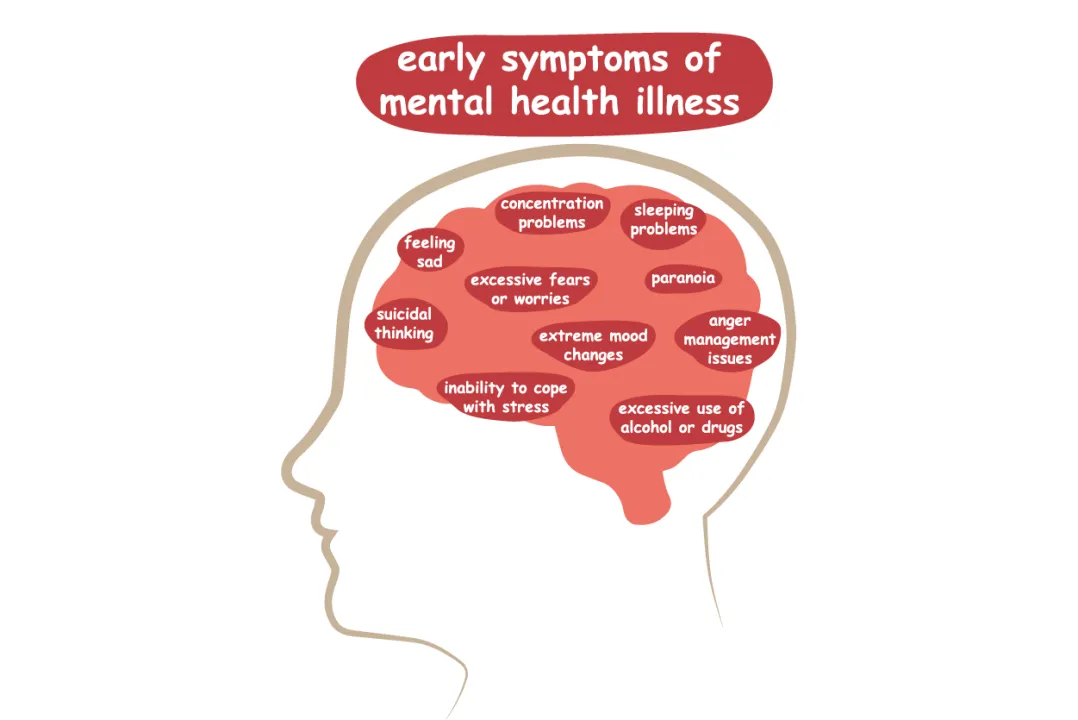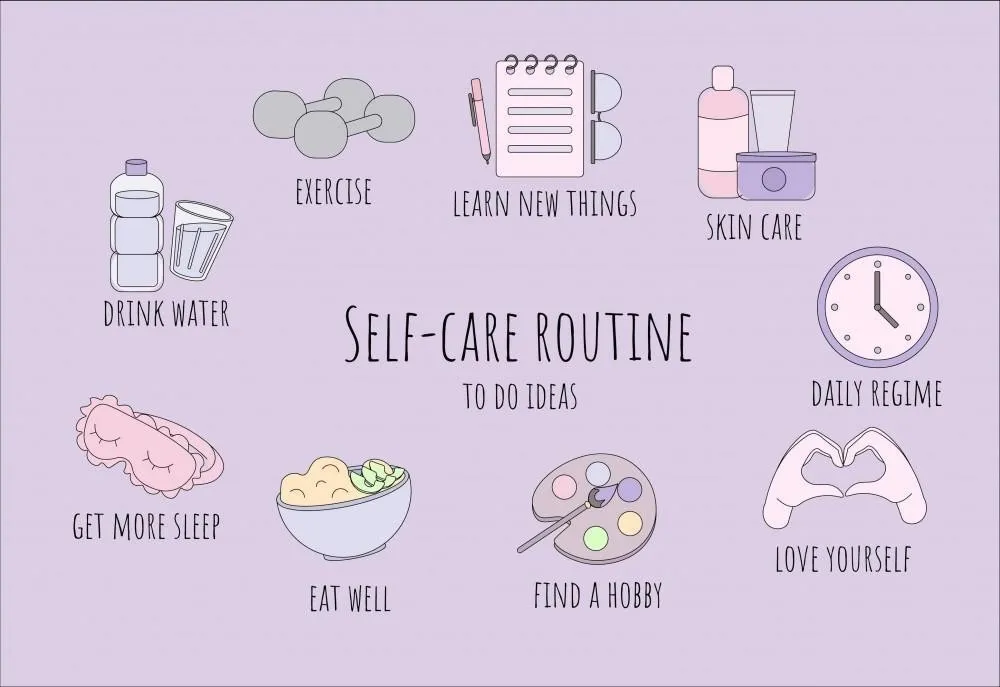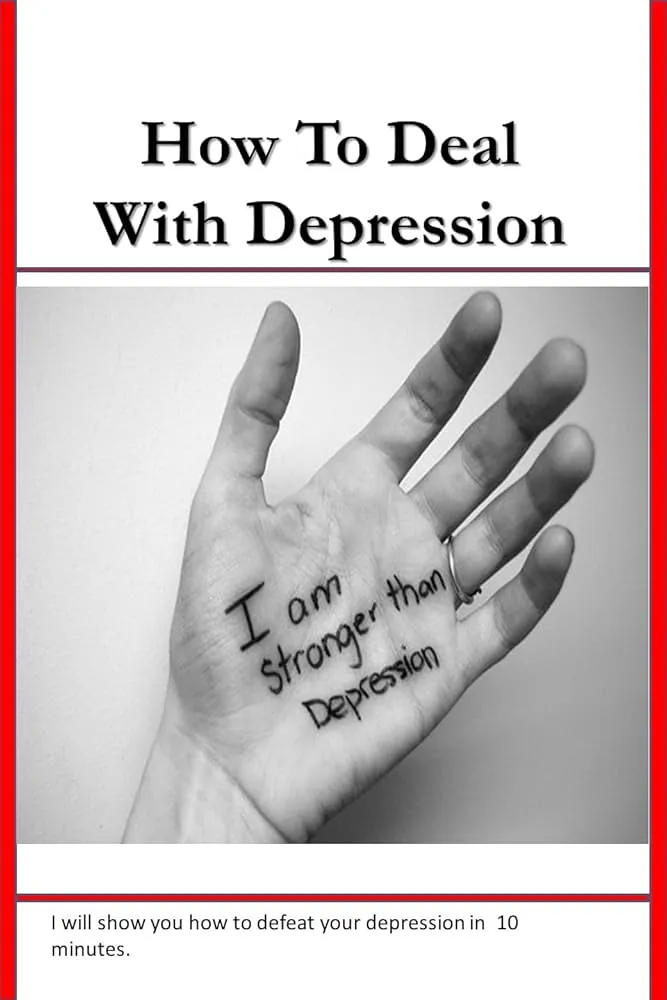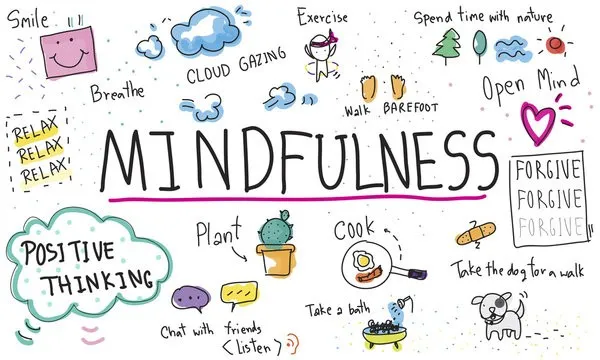Mental health is as vital as physical health in maintaining overall well-being. Yet, mental health issues often go unnoticed or misunderstood due to the stigma surrounding them. Recognizing the early signs of mental health problems can make a significant difference in seeking timely help and preventing the condition from worsening.
This article outlines common signs of mental health problems to help you or someone you care about identify when something may be amiss.
1. Persistent Sadness or Low Mood
Feeling sad occasionally is normal, especially after difficult life events. However, if sadness or a low mood persists for weeks or months without improvement, it could indicate a mental health issue such as depression. Signs include:
- Loss of interest in activities once enjoyed.
- Feelings of hopelessness, emptiness, or worthlessness.
- Unexplained crying spells or emotional numbness.
Persistent sadness that interferes with daily functioning is a key red flag that should not be ignored.
2. Excessive Worry or Anxiety
While it’s natural to worry about certain situations, excessive and uncontrollable anxiety may point to an underlying mental health problem. Symptoms of anxiety disorders include:
- Constant feelings of unease or dread.
- Difficulty concentrating due to intrusive thoughts.
- Physical symptoms such as sweating, rapid heartbeat, or trembling.
If worry becomes overwhelming and disrupts daily life, seeking professional support is crucial.
3. Changes in Sleep Patterns
Sleep disturbances are often linked to mental health conditions. This can manifest as:
- Insomnia: Difficulty falling or staying asleep.
- Hypersomnia: Excessive sleeping or feeling tired despite adequate rest.
- Nightmares or night terrors related to stress or trauma.
Poor sleep can exacerbate mental health problems, creating a cycle of worsening symptoms.
4. Withdrawal from Social Activities
Isolation and withdrawal from friends, family, and social interactions can be a significant indicator of mental health struggles. Look for:
- Avoiding gatherings or canceling plans frequently.
- A lack of interest in hobbies or relationships.
- Spending excessive time alone without a clear reason.
Social withdrawal can signal conditions such as depression, anxiety, or even early signs of schizophrenia.
5. Changes in Appetite or Weight
Mental health problems can affect eating habits, leading to noticeable changes in weight. This may include:
- Loss of Appetite: Skipping meals or eating significantly less.
- Overeating or Binge Eating: Turning to food for comfort or stress relief.
Eating disorders such as anorexia nervosa or bulimia can also develop, requiring specialized attention.
6. Difficulty Managing Emotions
Frequent mood swings or extreme emotional reactions are common signs of mental health issues. These include:
- Sudden outbursts of anger, irritability, or frustration.
- Unexplained crying spells or feelings of extreme happiness followed by deep sadness.
- Difficulty calming down after minor conflicts or stressors.
Such changes may indicate conditions like bipolar disorder, borderline personality disorder, or general emotional distress.
7. Fatigue or Lack of Energy
Chronic fatigue that isn’t explained by physical exertion or medical conditions could be linked to mental health problems. Individuals may feel:
- Drained or physically weak despite adequate rest.
- A lack of motivation to complete daily tasks.
- An overwhelming sense of exhaustion from routine activities.
This is a common symptom of depression, anxiety, and burnout.
8. Difficulty Concentrating or Making Decisions
Struggling with focus, memory, or decision-making may be a sign of cognitive impairment due to mental health conditions. Symptoms include:
- Losing track of conversations or tasks.
- Feeling mentally “foggy” or distracted.
- Inability to make even simple decisions.
These difficulties can stem from stress, anxiety, depression, or other mental health disorders.
9. Physical Symptoms with No Clear Cause
Mental health issues often manifest physically, even when no medical condition is present. Common psychosomatic symptoms include:
- Frequent headaches or migraines.
- Digestive problems like stomach pain, nausea, or diarrhea.
- Unexplained body aches or muscle tension.
If physical symptoms persist despite medical tests showing no abnormalities, it could indicate an underlying mental health concern.
10. Increased Use of Substances
Turning to alcohol, drugs, or other substances to cope with stress, anxiety, or emotional pain can be a sign of mental health struggles. Warning signs include:
- Drinking or using substances more frequently than usual.
- Relying on substances to feel “normal” or escape reality.
- Experiencing withdrawal symptoms when not using substances.
Substance abuse often co-occurs with conditions like depression, PTSD, or anxiety and requires comprehensive treatment.
11. Unexplained Irritability or Anger
While occasional irritability is normal, prolonged or intense anger can indicate mental health issues such as:
- Generalized Anxiety Disorder (GAD).
- Depression (which can sometimes present as irritability, especially in men).
- Post-Traumatic Stress Disorder (PTSD).
Uncontrolled anger can strain relationships and negatively affect one’s quality of life.
12. Feelings of Guilt or Worthlessness
Constant self-criticism, guilt, or feelings of inadequacy are common in people struggling with depression or low self-esteem. These feelings may manifest as:
- Obsessing over past mistakes.
- Believing they are a burden to others.
- Difficulty accepting praise or positive feedback.
Persistent feelings of worthlessness often require therapeutic intervention to address.
13. Thoughts of Self-Harm or Suicide
Perhaps the most serious sign of mental health problems is experiencing thoughts of self-harm or suicide. This may include:
- Thinking about ending one’s life or making plans to do so.
- Talking about feeling hopeless or that life is meaningless.
- Engaging in risky behaviors as a form of self-punishment.
If you or someone you know is experiencing these thoughts, seek immediate help by contacting a mental health professional or crisis hotline.
14. Trouble Maintaining Relationships
Mental health problems often strain personal and professional relationships. Signs of this include:
- Frequent conflicts or misunderstandings with loved ones.
- Difficulty expressing emotions or being vulnerable.
- Avoiding communication or pushing people away.
Relationship struggles can be both a symptom and a trigger for mental health challenges.
15. Loss of Interest in Personal Care
Neglecting personal hygiene or self-care routines can signal severe mental health problems. This may involve:
- Skipping showers, brushing teeth, or grooming.
- Wearing unclean clothes or neglecting appearance.
- Losing interest in maintaining a clean living environment.
These changes often indicate conditions like depression, burnout, or psychosis.
When to Seek Help
Recognizing the signs of mental health problems is the first step toward recovery. However, it’s equally important to seek professional help if:
- Symptoms persist for more than two weeks.
- Daily functioning becomes difficult.
- There’s an immediate risk of harm to oneself or others.
Mental health professionals, including therapists, psychologists, and psychiatrists, can provide the support and treatment needed to manage these conditions.
How to Support Someone Showing These Signs
If someone you know is exhibiting signs of mental health problems, here’s how you can help:
- Listen Without Judgment: Offer a safe space for them to express their feelings.
- Encourage Professional Help: Suggest visiting a mental health professional or counselor.
- Stay Supportive: Be patient and let them know they’re not alone in their journey.
Remember, small acts of kindness and understanding can make a big difference in someone’s life.
Conclusion
Mental health problems can affect anyone, but recognizing the early signs can prevent them from escalating. By staying aware of symptoms like persistent sadness, anxiety, social withdrawal, or changes in behavior, you can take proactive steps toward seeking help and improving well-being.
Addressing mental health issues early fosters resilience, recovery, and a better quality of life. Whether for yourself or someone you care about, understanding these warning signs is a crucial step in breaking the stigma around mental health and promoting a healthier, happier future.




